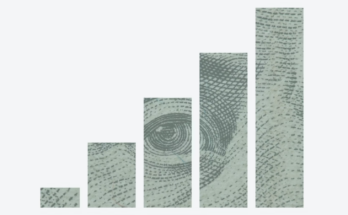Wealth Supremacy: How the Extractive Economy and the Biased Rules of Capitalism Drive Today’s Crises (2023), by Marjorie Kelly with foreword by Edgar Villanueva. Published by Berrett-Koehler Publishers, ISBN 9781523004775. Review by Guy Dauncey.
I am obsessed. For seven years, I have been pursuing a quest to understand what has been happening within our economies to cause so many things to go so disastrously wrong, from the looming climate catastrophe to the tectonic gulf of inequality, to the possible collapse of democracy. During these years I have consumed 475 books on economics and economic history, and loved every one of them.
Among this proliferation of the written word, some authors stand out. One such is Marjorie Kelly, distinguished senior fellow at the Democracy Collaborative, based in Cleveland, Ohio. With The Divine Right of Capital: Dethroning the Corporate Aristocracy (2002) she inspired the birth of the B Corps movement, which in turn has inspired 7,669 companies in 161 industries in 93 countries to adopt B Corps status and its unifying goal: to transform the global economy to benefit all people, communities, and the planet.
Throughout those years, I have been seeking the answer to my question. A hundred million people can mobilise to tackle a million pressing problems, but what is it that lies at the core of our problems? Without the answer to this question our efforts will be ineffective.
We have been colonised by capital, by the sacred expectation that the holders of capital must maximise their yields, no matter the consequence.
In her new book, Wealth Supremacy, Kelly comes very close to the answer I eventually found. Her driving insight is that we have been colonised by capital, by the sacred expectation that the holders of capital must maximise their yields, no matter the consequence. The destruction of nature, the quest for fossil fuel profits, the housing crisis, the cost of living, turning England’s rivers into sewers, tax avoidance by wealthy people, the war on labour unions, price-strangulation by monopolies, the disdain for good governance, the accumulation of debt, suicides of farmers, the impoverishment of the middle class – all of these can be blamed on the presumption that the owners of capital have a sacred obligation to maximise their risk-adjusted returns, to milk each of their assets to the extreme, no matter whether its is a rental apartment or a rainforest.
Kelly believes that “the mania for capital maximising has become a cult delusion.” My abiding image is of capital-maximisation as a parasite that attaches itself to anything with financial value, to suck out its wealth. She writes: “A once-functional system has turned treacherous. The wealthy are extracting massively from the rest of us.” We have been colonised by capital, or rather, by the holders of capital.
Kelly exposes the many myths that are used to justify the parasite’s behaviour. The myths that the system’s operations are purely mechanical, and that they follow the unseen laws of economics. The myth that expanding wealth is a sacred duty, a fiduciary duty to maximise return on investment, no matter the cost to society or nature. The myth of “materiality”, which states in the textbooks of accountancy that if something can’t be measured financially, “it’s not material”.
A once-functional system has turned treacherous. The wealthy are extracting massively from the rest of us.
Rainforests, affordable housing, a stable climate – they’re not material, so they don’t matter.
The myth of the income statement, that requires capital (profit) to be maximised and costs minimised, since anything that is an expense detracts from the maximisation of capital. So bye-bye workers. And bye-bye labour unions. The myth that the duty of a government is to protect wealth, so while “takings” from a propertied elite are prohibited, that same elite may take from others at will. Bye-bye workers’ pension funds, stripped from a company’s assets in a private equity take-over, to be distributed to the fund’s shareholders. This is “the bloodless math of portfolio returns.” During a life spent working to bring ethics and social responsibility to business, Kelly has found that “virtually all successful businesses end up in the maw of finance.”
Kelly once asked a private equity executive if he worried about making too much profit. “Well, no-one’s ever asked me that before,” he said with a laugh. In 2018, founder of the Susquehanna International Group hedge fund, Jeffrey Yass, took home $2bn. Over the years, he has avoided paying $1 bn in taxes.
Kelly has spent her life working to devise a new system, and she knows that alongside working to suppress capital’s drive to maximise its gains, we must construct a system whose institutions create broad wellbeing as part of their normal functioning (see box: Steps toward a new system). In Mondragon, where the 80,000 cooperative owners of several hundred companies in the Basque country of Spain own their own bank, if one of the coops gets into trouble the bank lowers the interest rate, rather than increase its profits at the expense of the coop. This is the normal way in which their system works.
We need:
- to finance the transition to renewable energy in ways that democratise power and ownership, so that we no longer depend on the whims of giant energy corporations;
- to develop an ecosystem of banking and finance that works in the public interest, through the development of community development financial institutions including cooperative, community, and public banks;
- to use the Federal Reserve (or Bank of England) to finance coordinated economic development by purchasing the loans and bonds of private enterprises and using them to serve public priorities;
- to rein in private equity and hedge funds, as Elizabeth Warren has sought to do through the Stop Wall Street Looting Act; and
- to mobilise institutional investors to make social purpose demands of their private equity partners;
There are examples of other measures that are already in place.
We should shift investments from Wall Street and the City of London to the high street, to create jobs and community wealth that nurture the real economy. This is what the Connecticut Green Bank is doing, with its $25m in Green Liberty Bonds that are used to tackle the climate crisis, and what the East Bay Permanent Real Estate Cooperative is doing, converting private real estate into cooperative housing for the existing tenants;
We should create a debt jubilee, as the Allies did for Germany after World War II, when they wiped out 90% of government and private debt. We could use debt-for-nature swaps, as Belize and Costa Rica have done, and RIP Medical Debt, which receives donations to buy debt for pennies on the dollar and uses it to wipe out $6.7bn in debt;
Wealth taxes and Baby Bonds could transform the current prospects for the very poor. Every child could receive $1,000 on each birthday rising to $2,000 for babies in the lowest income families. The tax funds would sit in an account managed by the Treasury, earning 3% a year and could be drawn out at adulthood for allowable uses, including education, starting a business or buying a home. Baby Bonds for a child from a very low-income family would grow to around $46,000, entirely transforming that child’s opportunities.
Kelly dates the assumed primacy of capital to the worldview of Britain’s white, male, propertied elite in the 17th century, who dethroned Charles II and presumed themselves to be the rightful rulers of the land. I believe that it has a far more ancient cause, which is the impulse that exists within each of us to try to dominate – to ignore the need for mutuality and cooperation and to pursue self-importance and power.
During the period 1933 to 1980, people who embodied the cooperative impulse managed to suppress those who wanted to dominate, creating the New Deal, social democracies, welfare, pro-union policies, and restraints on capital mobility. After 1980, those who embodied self-importance, and the right to get as rich as they could by maximising their returns on capital, regardless of the human or environmental cost, reclaimed power. They still run the show.
History tells us that this can change. Kelly has done us a service by diagnosing the parasite of wealth supremacy, in all its selfish ugliness. Now that we know what ails us, we must neutralise it, and build in its place an economy that serves all people, and all nature.



